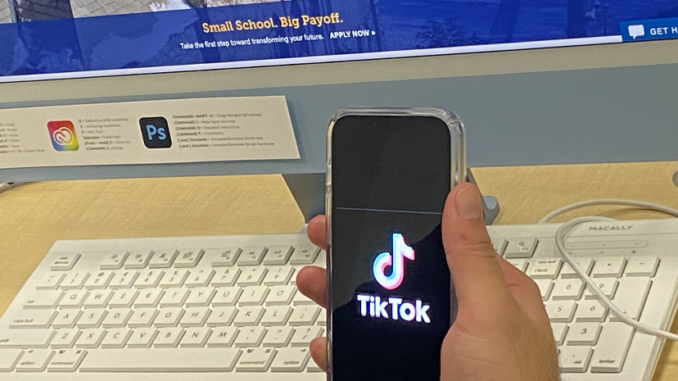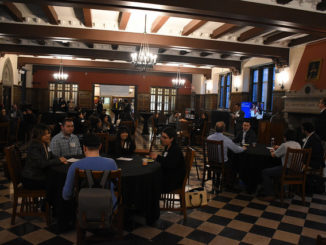
Litzi Duran
Contributing Writer
Students at dozens of universities around the country are losing on-campus access to TikTok, but that kind of ban is highly unlikely at Dominican University, according to a top tech official.
“I will not [block] the access of TikTok on campus, unless I absolutely have to pull the plug for the sake of student safety,” said Todd Kleine, chief information officer at Dominican University.
State universities around the country have blocked access to the popular social media app under pressure from state lawmakers, who worry about the misuse of data on state-run networks. China-based ByteDance owns TikTok; security officials fear that the company might share data with the Chinese government. Illinois has not blocked TikTok from state universities.
The only time social media access has been blocked at Dominican in the past was in 2005. Former Dean of Students, Trudi Goggin, briefly blocked access to Facebook as a result of student behavior online. Goggin wanted to put a stop to the growing trends of online harassment and saw the ban to be the only appropriate way.
The concern arising from the usage of TikTok stems from the collection of user data. Although this is something that all social media companies do, federal officials still fear malicious actors could utilize this data to spread misinformation to users.
“Any time you respond, you’re providing a wealth of information. Any location information, personal information, socioeconomic status, gender, any of that stuff, any [of] these bits of information opens up more information,” said Don Hamerly, the director of the school of information studies.
“All that information is being traded among companies,” he said. “Social media companies are primarily in the business of making sure that you spend as much time as possible on their platform.”
Anytime people interact with different features online such as advertisements, likes, and reposts, the platform they’re interacting with is actively retrieving more information about the user. Hamerly explains that this information is regularly sold and traded among companies.
“You think you’re the producer and the consumer of information [but] you’re really the product,” he said. “It’s all about what information they can get about you so that they can trade and sell that information to make money,”
Kleine explains that one can hope for social media actors to make users’ best interests a priority, but that it’s important for students to be mindful of the amount of information they provide on the internet.
“Students should always be careful to not provide too much information online, that being their social security or home address, stuff like that,” Kleine said. “I recommend students treat everything they post on the internet as something that will be there forever.”
On Jan. 25, Kleine and Gray Castle, the university’s cyber security company consultant, had a discussion about TikTok. During this discussion, the company did not see a reason to block TikTok on campus.
Kleine is continuously monitoring the situation by keeping regular contact with other universities like Lewis and Elmhurst, where they have also not taken action on this so far.



